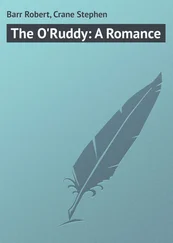Presently the commanding officer turned in his saddle and told the dragoman that he was going to ride forward with his orderly to where he could see the flanking parties and the scouts, and courteously, with the manner of a gentleman entertaining two guests, he asked if the civilians cared to accompany him. The dragoman would not have passed this question correctly on to Coleman if he had thought he could have avoided it, but, with both men regarding him, he considered that a lie probably meant instant detection. He spoke almost the truth, contenting himself with merely communicating to Coleman in a subtle way his sense that a ride forward with the commanding officer and his orderly would be depressing and dangerous occupation. But Coleman immediately accepted the invitation mainly because it was the invitation of the major, and in war it is a brave man who can refuse the invitation of a commanding officer. The little party of four trotted away from the reserves, curving in single file about the water-holes. In time they arrived at where the plain lacked trees and was one great green lake of grass; grass and scrubs. On this expanse they could see the Greek horsemen riding, mainly appearing as little black dots. Far to the left there was a squad said to be composed of only twenty troopers, but in the distance their black mass seemed to be a regiment.
As the officer and his guests advanced they came in view of what one may call the shore of the plain. The rise of ground was heavily clad with trees, and over the tops of them appeared the cupola and part of the walls of a large white house, and there were glimpses of huts near it as if a village was marked. The black specks seemed to be almost to it. The major galloped forward and the others followed at his pace. The house grew larger and larger and they came nearly to the advance scouts who they could now see were not quite close to the village. There had been a deception of the eye precisely as occurs at sea. Herds of unguarded sheep drifted over the plain and little ownerless horses, still cruelly hobbled, leaped painfully away, frightened, as if they understood that an anarchy had come upon them. The party rode until they were very nearly up with the scouts, and then from low down at the very edge of the plain there came a long rattling noise which endured as if some kind of grinding machine had been put in motion. Smoke arose, faintly marking the position of an intrenchment. Sometimes a swift spitting could be heard from the air over the party.
It was Coleman's fortune to think at first that the Turks were not firing in his direction, but as soon as he heard the weird voices in the air he knew that war was upon him. But it was plain that the range was almost excessive, plain even to his ignorance. The major looked at him and laughed; he found no difficulty in smiling in response. If this was war, it could be withstood somehow. He could not at this time understand what a mere trifle was the present incident. He felt upon his cheek a little breeze which was moving the grass-blades. He had tied his canteen in a wrong place on the saddle and every time the horse moved quickly the canteen banged the correspondent, to his annoyance and distress, forcibly on the knee. He had forgotten about his dragoman, but happening to look upon that faithful servitor, he saw him gone white with horror. A bullet at that moment twanged near his head and the slave to fear ducked in a spasm. Coleman called the orderly's attention and they both laughed discreetly. They made no pretension of being heroes, but they saw plainly that they were better than this man. Coleman said to him : "How far is it now to Nikopolis?" The dragoman replied only, with a look of agonized impatience.
But of course there was no going to Nikopolis that day. The officer had advanced his men as far as was intended by his superiors, and presently they were all recalled and trotted back to the bridge. They crossed it to their old camp.
An important part of Coleman's traps was back with his Athenian horses and their groom, but with his present equipment he could at least lie smoking on his blankets and watch the dragoman prepare food. But he reflected that for that day he had only attained the simple discovery that the approach to Nikopolis was surrounded with difficulties.
Table of Contents
The same afternoon Coleman and the dragoman rode up to Arta on their borrowed troop horses. The correspondent first went to the telegraph office and found there the usual number of despairing clerks. They were outraged when they found he was going to send messages and thought it preposterous that he insisted upon learning if there were any in the office for him. They had trouble enough with endless official communications without being hounded about private affairs by a confident young man in khaki. But Coleman at last unearthed six cablegrams which collective said that the Eclipse wondered why they did not hear from him, that Walkley had been relieved from duty in London and sent to join the army of the crown prince, that young Point, the artist, had been shipped to Greece, that if he, Coleman, succeeded in finding the Wainwright party the paper was prepared to make a tremendous uproar of a celebration over it and, finally, the paper wondered twice more why they did not hear from him.
When Coleman went forth to enquire if anybody knew of the whereabouts of the Wainwright party he thought first of his fellow correspondents. He found most of them in a cafe where was to be had about the only food in the soldier-laden town. It was a slothful den where even an ordinary boiled egg could be made unpalatable. Such a common matter as the salt men watched with greed and suspicion as if they were always about to grab it from each other. The proprietor, in a dirty shirt, could always be heard whining, evidently telling the world that he was being abused, but he had spirit enough remaining to charge three prices for everything with an almost Jewish fluency.
The correspondents consoled themselves largely upon black - bread and the native wines. Also there were certain little oiled fishes, and some green odds and ends for salads. The correspondents were practically all Englishmen. Some of them were veterans of journalism in the Sudan, in India, in South Africa; and there were others who knew as much of war as they could learn by sitting at a desk and editing the London stock reports. Some were on their own hook; some had horses and dragomen and some had neither the one nor the other; many knew how to write and a few had it yet to learn. The thing in common was a spirit of adventure which found pleasure in the extraordinary business of seeing how men kill each other.
They were talking of an artillery duel which had been fought the previous day between the Greek batteries above the town and the Turkish batteries across the river. Coleman took seat at one of the long tables, and the astute dragoman got somebody in the street to hold the horses in order that he might be present at any feasting.
One of the experienced correspondents was remarking that the fire of the Greek batteries in the engagement had been the finest artillery practice of the century. He spoke a little loudly, perhaps, in the wistful hope that some of the Greek officers would understand enough English to follow his meaning, for it is always good for a correspondent to admire the prowess on his own side of the battlefield. After a time Coleman spoke in a lull, and describing the supposed misfortunes of the Wainwright party, asked if anyone had news of them. The correspondents were surprised; they had none of them heard even of the existence of a Wainwright party. Also none of them seemed to care exceedingly. The conversation soon changed to a discussion of the probable result of the general Greek advance announced for the morrow.
Читать дальше












